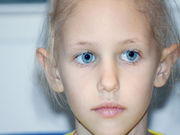Statistically significant changes in migraine intensity, frequency, duration from pre- to post-therapy
TUESDAY, Oct. 24, 2017 (HealthDay News) — OnabotulinumtoxinA (Botox) injections are beneficial for pediatric patients with chronic migraine, according to a study presented at the annual meeting of the American Society of Anesthesiologists, being held Oct. 21 to 25 in Boston.
Michael-David Calderon, from UC Irvine Health in Orange, California, and colleagues performed a retrospective chart review for pediatric patients aged 8 to 17 years who received onabotulinumtoxinA for treatment of chronic migraine. Data were included for 10 patients receiving Botox across 35 injections; one patient was lost to follow-up.
The researchers found that there were statistically significant changes in migraine intensity (from 6 to 4 on a linear 0-to-10 scale), frequency (from 15.5 to four per month), and duration (eight to 0.75 hours) from pre- to post-treatment. There was no statistically significant change in concomitant medications and oral morphine equivalency, although clinically relevant decreases were seen.
“Many current migraine medications have side effects including sedation, dry mouth, and confusion, which aren’t well-tolerated in children and teens,” one co-author said in a statement. “Our research of Botox is part of an effort to find better treatments for children and teens with migraines so they can realize their full potential.”
Copyright © 2017 HealthDay. All rights reserved.








